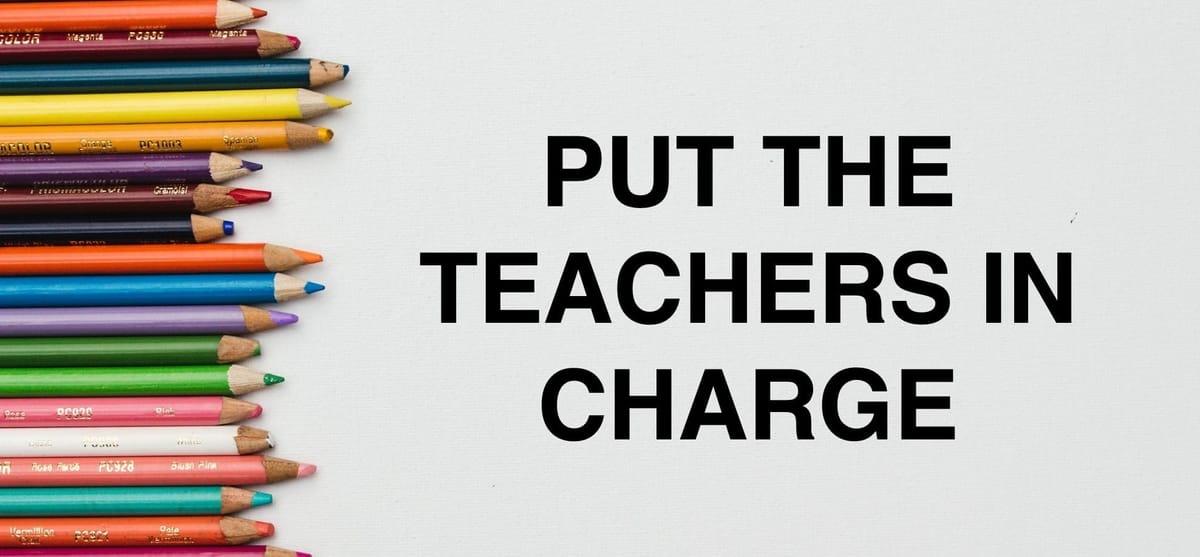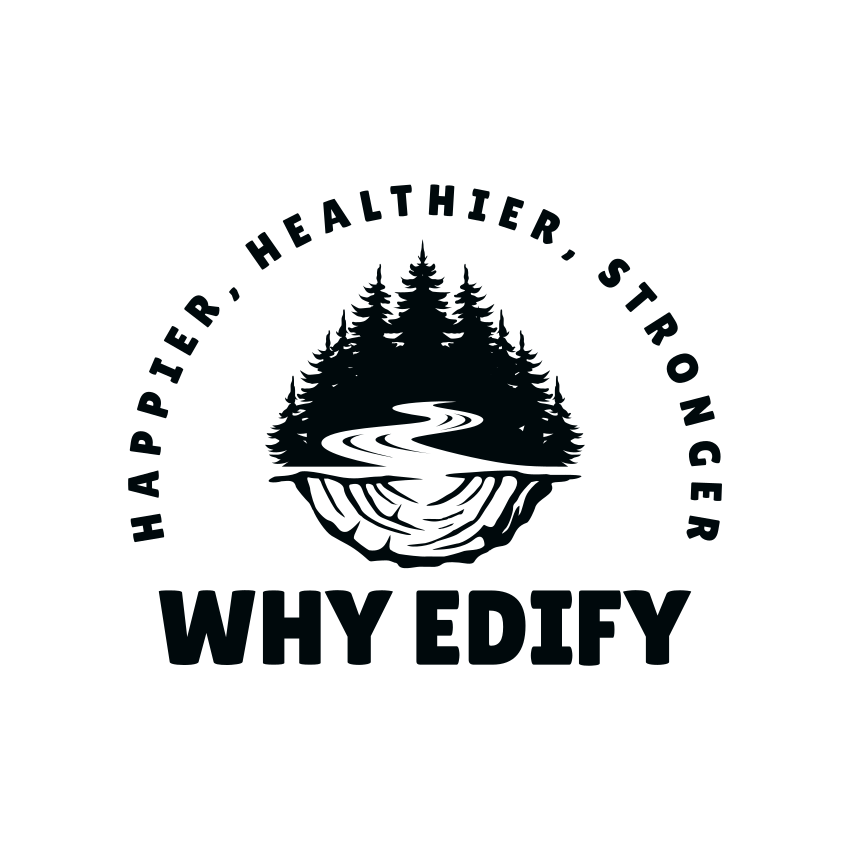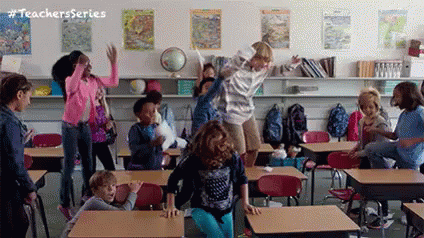Put the Teachers in Charge
This week's topics include teacher-led professional development, the power of classroom management, and letting go of perfection.


The Friday Five
Become a SupporterI’ve really been digging into classroom management these past few weeks while working on an eBook for The Strong Teacher School Course. Classroom management is the teacher skill that can alleviate some of the biggest challenges teachers face.
Here’s some of the latest information I’ve added to the eBook (PBS article below). Also, you can sign up for the Strong Teacher Course and retain access as it grows. You’ll also receive all of the community resources as they are added.
Positive Behavior Support (PBS) is an educational approach that emphasizes teaching and reinforcing good behavior rather than focusing on punishment. By establishing clear expectations, maintaining a supportive environment, and using data-driven decisions, educators can create more effective learning spaces. Success comes through incorporating technology thoughtfully, maintaining strong parent communication, and helping students develop emotional awareness - ultimately creating an environment where both students and learning can thrive.
Reflection Questions:
- What aspects of classroom management do you currently find most challenging, and how might implementing PBS strategies help address these challenges?
- How does the teacher-led collaborative learning research resonate with your professional development experiences? What area of your teaching practice would you like to explore through collaborative action research?
- Reflecting on Oliver Burkeman's perspective about perfectionism, what is one area of your teaching practice where you could benefit from embracing imperfection? How might this shift in mindset impact both you and your students?
The Friday Five
1 - Put The Teachers In Charge
Teachers who get to choose what they want to learn through collaborative action research are more likely to stay in their jobs and feel empowered in their work. This research-based approach allows teachers to work together, study their own teaching methods, and make improvements based on what they discover about their students' learning. The model is especially effective in remote and Indigenous communities where teacher shortages are common, helping teachers feel more excited about their work while improving student engagement.
Examples of this collaborative approach include teachers forming study groups to explore new teaching technologies, conducting classroom observations and providing peer feedback, or working together to develop culturally responsive teaching practices.
For instance, a group of math teachers might collaborate to study how incorporating hands-on activities affects student understanding, while language arts teachers might work together to research and implement new strategies for supporting English language learners. These teacher-led initiatives allow educators to address specific challenges they face in their classrooms while building a supportive professional community.
2 - Classroom Management is King
A new study analyzing 25,000 novice teachers in Tennessee reveals that classroom management skills are the strongest predictor of both teacher effectiveness and retention, outweighing other factors like content presentation or assessment abilities. The research conducted by Brendan Bartanen and colleagues found that teachers struggling with behavior management were more likely to receive low evaluation scores and eventually leave the profession due to burnout. The study emphasizes that principals can support new teachers by providing clear, actionable feedback after classroom observations, with nearly half of teachers currently receiving no such guidance.

While new teachers typically focus on basic classroom management, more experienced educators can improve sophisticated teaching skills like facilitating group work and asking higher-order questions. The findings suggest that targeted support for novice and experienced teachers is crucial, as professional development opportunities may be underutilized after the first five years of teaching.
Even though study focuses on novice teachers; classroom management remains a critical skill throughout an educator's career. Experienced teachers also benefit by continuously adapting their management strategies to meet the evolving needs of different student populations, changing classroom dynamics, and new educational technologies. Even veteran educators benefit from regular professional development in this area, as effective classroom management creates the foundation for implementing advanced teaching techniques and maintaining high levels of student engagement. Strong management skills help prevent teacher burnout and promote job satisfaction across all experience levels, making it a worthwhile investment for schools to provide ongoing support and training in this area.
3 - Feeling Empty Inside
Oliver Burkeman writes about how he used to worry too much about getting everything done perfectly. Many people feel the same way - like they're always falling behind in life. He talks about his time as a journalist and what he learned from talking to his readers. He explains that trying too hard to control everything in our lives can make us feel stressed out and tired. When we push ourselves to do more and more, we often end up feeling empty inside. His new book "Meditations for Mortals" suggests a better way: accept that we can't be perfect, and that's okay. By understanding our limits, we can actually live a happier and more meaningful life instead of always trying to control everything.
Teachers can really benefit from this way of thinking. We often feel pressured to do everything perfectly, from grading every paper to creating fantastic lesson plans for each class. But trying to be perfect all the time is exhausting and burns teachers out. By accepting that it's okay not to do everything perfectly, teachers can focus on what matters: helping their students learn. This means they might spend more time connecting with students and less time worrying about having the perfect classroom or assignments.
4 - A Plan is Just a Thought
"The real problem isn’t planning. It’s that we take our plans to be something they aren’t. What we forget, or can’t bear to confront, is that, in the words of the American meditation teacher Joseph Goldstein, “a plan is just a thought.” We treat our plans as though they are a lasso, thrown from the present around the future, in order to bring it under our command. But all a plan is—all it could ever possibly be—is a present-moment statement of intent. It’s an expression of your current thoughts about how you’d ideally like to deploy your modest influence over the future. The future, of course, is under no obligation to comply." — Oliver Burkeman
5 - Teacher Commuter Playlist - Rain or Shine by Drew and Ellie Holcomb
Choose Your Own Adventure
- We should all be telling more jokes.
- Spokabulary - Create custom spelling and vocabulary games powered by AI. It seems to work best on a desktop computer.
- Planning Problems - Here's the truth: Your perfect routine is waiting to be discovered. It might take time, but that's okay. The journey to finding what works for you is just as valuable as the destination.
Why Edify Recommendations
- Book- Teach Like Finland by Timothy D. Walker - 33 Simple Strategies For Joyful Classrooms. Timothy D. Walker, a fifth-grade teacher in Helsinki, documented Finland's successful educational practices through his experiences and Atlantic articles, revealing strategies that can be implemented in other countries.
- Teacher Swag - I Turn Coffee Into Lesson Plans. Warning: This may cause spontaneous nods of agreement from fellow teachers and random high-fives in the staff room. Side effects include increased confidence in lesson planning abilities and an inexplicable urge to visit the coffee machine.

❤ Enjoy this Article?
🍵 Show Your Support and 🤗 Share It



